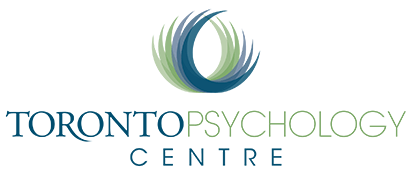Therapy for Children
We provide treatment to children using an evidence-based model of care that aims to build on the unique strengths of each child and family. Engaging children in therapy and reaching successful outcomes often involves a close working relationship with family members.
We believe that a team approach is especially important with young children and seek your partnership in finding ways to effectively address concerns with your child.
- Commonly addressed areas of concern for children
- Commonly addressed diagnostic conditions for children
- What to expect in therapy for children
- Evidence-based treatment for children: Play Therapy & Cognitive Behaviour Therapy (CBT)
Commonly addressed areas of concern for children:
- Challenges in home life (e.g., loss, separation, divorce, blended families, difficulties with siblings)
- Managing upsetting emotions such as fear, sadness, and shame
- Oppositional behaviour, emotion regulation, and maladaptive anger
- Parenting concerns (e.g., appropriate discipline, limit setting, agreement between parents on decision making, fostering strong communication)
- School and learning-related difficulties (e.g., poor grades, school refusal, coping with symptoms of ADHD)
- Social/peer difficulties (e.g., bullying, conflict, isolation, loneliness)
Commonly addressed diagnostic conditions for children:
- Anxiety Disorders such as Agoraphobia, Panic Disorder, Generalized Anxiety Disorder, Separation Anxiety, Social Anxiety Disorder
- Fears and phobias such as animals, imaginary figures, fear of injury and health-related concerns, dying, sleeping alone, the dark, specific weather conditions (e.g., thunderstorms)
- Depressive Disorders (e.g., situational sadness related to loss, transitions and grief or chronic sadness)
- Enuresis (bed wetting) and Encopresis (soiling)
- Obsessive-Compulsive Disorder
- Selective mutism
- Psychoeducational assessments for Learning Disabilities, ADHD, and Autism Spectrum Disorder and Giftedness (please see Assessment Services for details)
What to expect in therapy for children
The beginning steps of treatment involve a thorough assessment and collaborative treatment plan to address your child’s concerns. Treatment length can vary depending on the severity and nature of the symptoms. Weekly sessions are recommended to help your child develop trust with their psychologist and effectively engage in therapy.
Parent involvement is an integral component to the success of child therapy. Parents may be asked to meet with the psychologist to assist in problem solving with their child, or participate by contributing to and/or following recommendations that support what their child has learned in therapy and apply these lessons to the home and school environments.
Evidenced-based treatment for children: Play Therapy & Cognitive Behaviour Therapy (CBT)
Therapy with children often involves play, as play provides a means for communicating stressful thoughts or uncomfortable feelings that may be difficult for some children to put into words. Play therapy is different than regular play because the therapist helps a child address and resolve their own problems. Therapy with children attempts to recreate a child’s concerns in a safe and manageable way and to facilitate learning of healthy problem solving and coping skills.
Through the use of play, in combination with an underlying evidence-based cognitive-behaviour therapy framework, therapy can help children gain understanding, comfort, empowerment, and a sense of mastery over their emotions and the stressors in their lives.
Depending on the age of the child and the issue being addressed, CBT may be used either in combination with play therapy or as a standalone treatment. Cognitive behaviour therapy (CBT) combines theories about how people learn with theories about the way people think and interpret events in their lives. It is an active, goal-directed treatment that can help your child change problematic behaviours and develop skills to better cope with their fears or manage feelings such as sadness and anger. CBT helps children identify “thinking traps” and provides guidance on how to challenge and change these biases in thinking that are negatively impacting their mood and/or behaviour.
CBT encourages your child to apply what they learn in treatment to real-life situations and stressors, so that they can increase their competency and sense of efficacy in dealing with emotional issues on their own.
Please contact us to find out more about Therapy for children..

